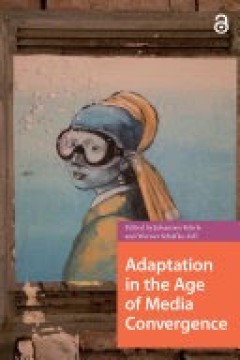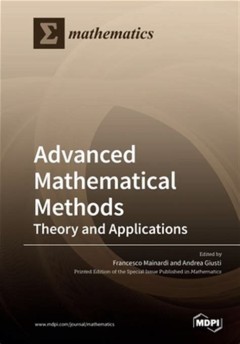Filter by

"A Road to Peace and Freedom": The International Workers Order and the Strugg…
Zecker examines the multicultural civil-rights activism and union militancy of the International Workers Order and other left-leaning immigrant groups, investigating the program of such organizations regarding civil rights, unionizing, and workplace justice. It looks at what these organizations did that caused the U.S. government to prosecute them and how these groups sought to defend themselve…
- Edition
- -
- ISBN/ISSN
- 9781439915172
- Collation
- -
- Series Title
- -
- Call Number
- -

Adaptation of the Root System to the Environment
eywords TIFY; Populus trichocarpa; protein interaction network; phytohormone treatment; abiotic stress; bioengineering; Carpinus betulus; Fagus orientalis; tensile force; Acer pseudoplatanus; competition below ground; extracellular enzymes; Fagus sylvatica; intraspecific and interspecific competition; toot economic spectrum; toot respiration; tree root traits; soil compaction; N loading; fine …
- Edition
- -
- ISBN/ISSN
- 9783036539706
- Collation
- -
- Series Title
- -
- Call Number
- -

Adaptation of Dryland Plants to a Changing Environment
Abstract This eBook is a collection of articles from a Frontiers Research Topic. Frontiers Research Topics are very popular trademarks of the Frontiers Journals Series: they are collections of at least ten articles, all centered on a particular subject. With their unique mix of varied contributions from Original Research to Review Articles, Frontiers Research Topics unify the most influential …
- Edition
- -
- ISBN/ISSN
- 9782889633159
- Collation
- -
- Series Title
- -
- Call Number
- -

" . . . A Right Good People"
A collection of true stories gathered from the Southern Appalachian people, this book echoes the folkways and values of another era. Published in 1974, the stories collected in "... A Right Good People" were originally published in the ###Charlotte Observer,# the largest newspaper in the Carolinas in the 1970s. These stories were written with the intention of illustrating the heritage of the Ap…
- Edition
- -
- ISBN/ISSN
- 9781469638362
- Collation
- -
- Series Title
- -
- Call Number
- -

Advanced Mathematics and Computational Applications in Control Systems Engine…
Control system engineering is a multidisciplinary discipline that applies automatic control theory to design systems with desired behaviors in control environments. Automatic control theory has played a vital role in the advancement of engineering and science. It has become an essential and integral part of modern industrial and manufacturing processes. Today, the requirements for control preci…
- Edition
- -
- ISBN/ISSN
- 9783036514529, 9783036514512
- Collation
- 178 hlm; ill., lamp.,
- Series Title
- -
- Call Number
- -

Adaptation in the Age of Media Convergence
Abstract This collection considers new phenomena emerging in a convergence environment from the perspective of adaptation studies. The contributions take the most prominent methods within the field to offer reconsiderations of theoretical concepts and practices in participatory culture, transmedia franchises, and new media adaptations. The authors discuss phenomena ranging from mash-ups of nov…
- Edition
- -
- ISBN/ISSN
- 9789048534012
- Collation
- -
- Series Title
- -
- Call Number
- -

“3D” Parametric and Nonparametric Description of Surface Topography in Ma…
In present book, an analysis of the literature pertaining to parametric and non-parametric descriptions of surface topography in basics manufacturing processes (e.g., turning, milling, grinding) has been performed. The book focuses on the improvement of machining processes, with particular attention to the functional properties of surfaces, and, also, in the control of process parameters by a s…
- Edition
- -
- ISBN/ISSN
- 9783036514048
- Collation
- -
- Series Title
- -
- Call Number
- -

Adams and Jefferson
Abstract Adams and Jefferson: A Revolutionary Dialogue documents the public lives and personal friendship of John Adams and Thomas Jefferson, from their first meeting as delegates to the Second Continental Congress to their deaths on the fiftieth anniversary of the Declaration of Independence. This study takes a look at some of the famous correspondence between the two statesmen who devoted th…
- Edition
- -
- ISBN/ISSN
- 9780820359045
- Collation
- -
- Series Title
- -
- Call Number
- -

Advanced Mathematical Methods: Theory and Applications
The many technical and computational problems that appear to be constantly emerging in various branches of physics and engineering beg for a more detailed understanding of the fundamental mathematics that serves as the cornerstone of our way of understanding natural phenomena. The purpose of this Special Issue was to establish a brief collection of carefully selected articles authored by promis…
- Edition
- -
- ISBN/ISSN
- 9783039282463, 9783039282470
- Collation
- 198 hlm; ill., lamp.,
- Series Title
- -
- Call Number
- -

Adamantiana 21: Perspectives on Origen and the History of his Reception
Abstract The present volume contains papers on Origen and the history of his reception which were presented at a series of workshops at the Eighteenth International Conference on Patristic Studies held at Oxford in August 2019. They provide multifarious insights into various aspects of Origen’s thought and his impact on different topics of theology, exegesis and philosophy from Late Antiquit…
- Edition
- -
- ISBN/ISSN
- 9783402137574
- Collation
- -
- Series Title
- -
- Call Number
- -
 Computer Science, Information & General Works
Computer Science, Information & General Works  Philosophy & Psychology
Philosophy & Psychology  Religion
Religion  Social Sciences
Social Sciences  Language
Language  Pure Science
Pure Science  Applied Sciences
Applied Sciences  Art & Recreation
Art & Recreation  Literature
Literature  History & Geography
History & Geography